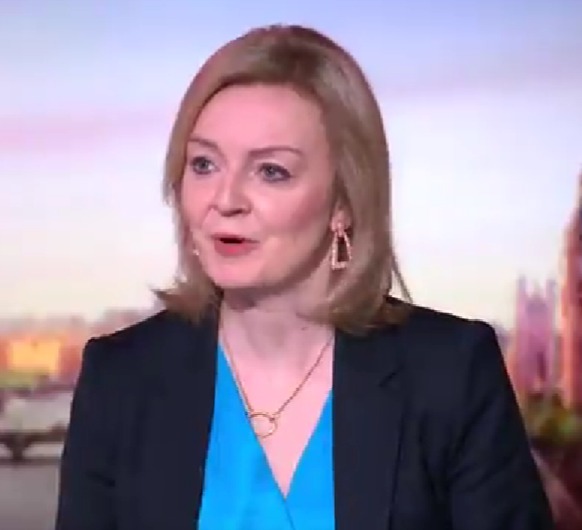BRIT households are facing surging bills that will leave millions facing tough decisions on how they’ll afford food shopping, a leading political show host says.
Trevor Phillips blasted Foreign Secretary Liz Truss in his Sky News show this morning – and asked: “Where are people going to find the money?”


It comes as Boris Johnson and Rishi Sunak confirmed the National Insurance hike will go ahead, despite huge opposition.
It means the tax will go up by 1.25 percentage points – or 10 per cent – in April.
The hike will add £130 a year to the tax bill of Brits on a £20,000 salary, and £255 for those who earn £30,000.
People on £50,000 will pay £505 extra annually, those on £80,000 will have to fork out £880 and earners on £100,000 face a £1,130 bill.
Meanwhile, the energy cap will lift in the spring, sending bills rocketing by up to 50 per cent.
Ms Truss was sent out to defend the PM amid the cost of living crisis this morning.

Read our UK politics live blog for the latest news and updates
Discussing the National Insurance rise, Mr Phillips said: “In practical terms, for an average household that’s an extra £300 a year, or, according to Office for National Statistics figures, six weeks of shopping at a supermarket.
“That’ll be followed by the energy price rise – another £600, or 12 weeks’ shopping.
“Assuming you don’t want most of the country to spend a third of the year not eating, where are people going to find the money?”
Ms Truss admitted the situation is “very difficult”.
“The best thing we can do as a Government is opening up the economy, helping it to grow,” she said.
“But of course, we do have to pay.”
She later told the BBC’s Sophie Raworth: “Taxes are never popular, but as soon as possible, we want to be in a position to lower tax rates and drive economic growth.
COST OF LIVING CRISIS
“We do face a short-term issue, which is that we’ve spent significant amounts of money dealing with the Covid crisis.”
Meanwhile, Tory MP Robert Halfon told Mr Phillips the money should come from other sources.
He suggested imposing windfall taxes on big businesses, particularly oil companies – and said they’ve been “raking it in over past couple of years.”
The PM has come under huge pressure from within his own party to scrap or delay the increase.
But Paul Johnson, director of the Institute for Fiscal Studies, said failing to go ahead with the move could throw up an issue of credibility with the public.
He argued that the tax hike is about trying to cover the “long-term ever-growing costs” of the NHS.
Mr Johnson told Times Radio: “Even if we hadn’t had a pandemic and even if the Government wasn’t doing anything about social care, they would still have needed a rise of something like this because spending on the NHS is just rising inexorably year on year on year.
“In a way, my view is that the pandemic has given them an excuse to smuggle in the rather big tax rise that they would have had to do in any case.”
From 2023, the rise is due to drop back to its current rate, with a 1.25 per cent health and social care levy then applied to raise funds for improvements to care services.






